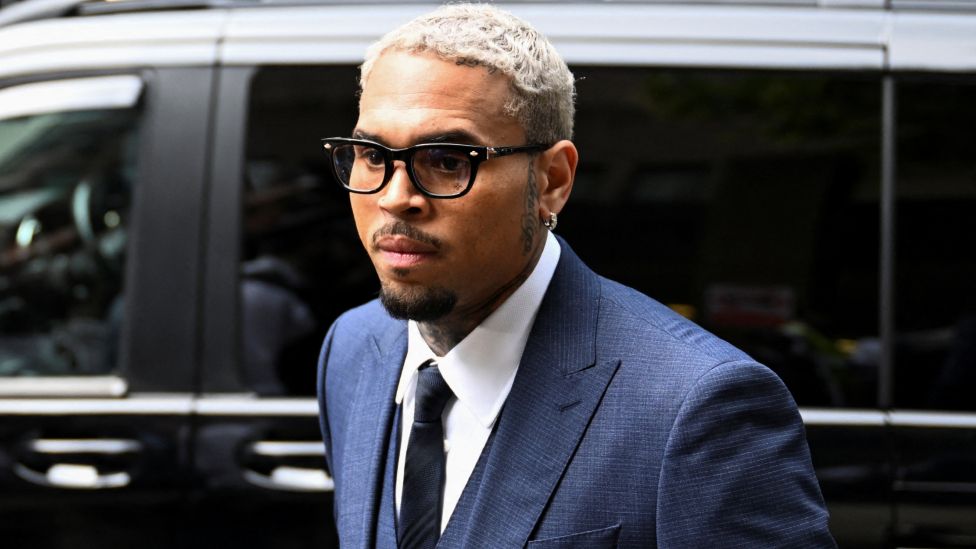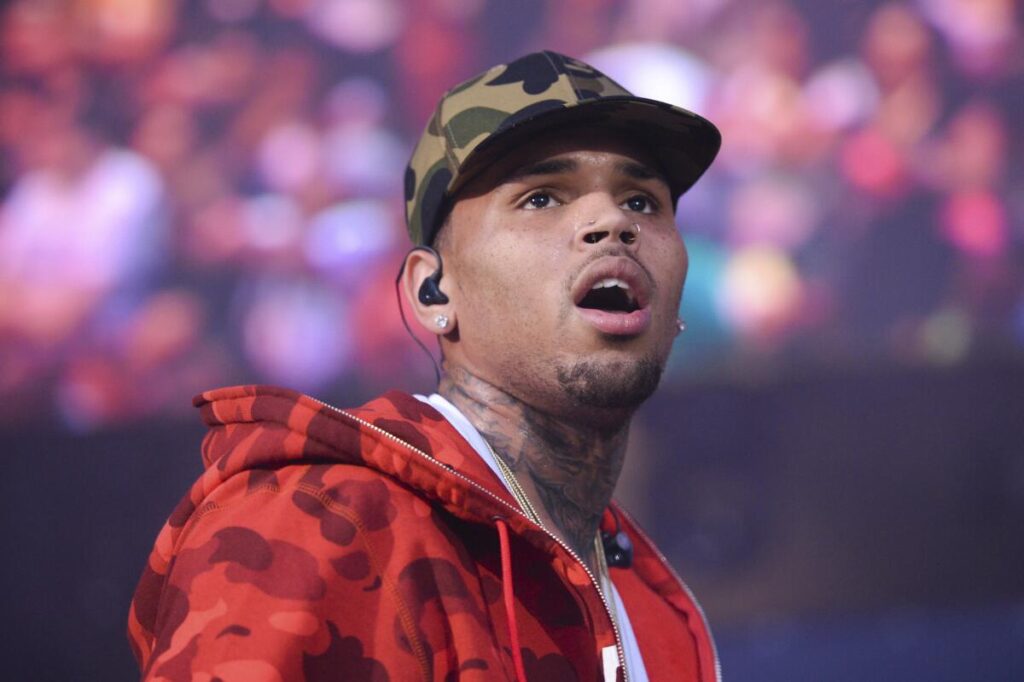Chris Brown is once again at the center of a high-profile legal storm. On Friday, June 20, 2025, the Grammy-winning R&B artist appeared in a London courtroom to plead not guilty to a serious criminal charge stemming from an alleged 2023 nightclub assault. The charge accuses Brown of attempting to inflict grievous bodily harm on a music producer with a tequila bottle — an incident prosecutors claim was “unprovoked.”
Though the court appearance was brief, the weight of Brown’s past loomed large. With supporters filling the public gallery and shouting encouragement as he exited the hearing, the moment served as another reminder of Brown’s complex and controversial public life. The man who once reigned as one of pop and R&B’s brightest stars continues to grapple with a legacy marked by extraordinary talent and repeated legal trouble.
Brown, now 36, stood in the courtroom quietly and respectfully. The hearing, while procedural, marked a significant turning point in a case that had been brewing behind the scenes for nearly two years. Dressed in a muted suit, Brown spoke only to confirm his name and birth date before responding, “Not guilty, ma’am,” to the charges read by the court clerk.
Despite the gravity of the accusation, Brown was released on bail after securing a $6.7 million bond in May. That hefty sum was paid to allow the singer to embark on his “Breezy Bowl XX” world tour — a tour that many critics believe is part of an ongoing effort to repair his public image and refocus the narrative on his music.
His co-defendant, 38-year-old rapper Omololu Akinlolu, better known as HoodyBaby, also pleaded not guilty to the same charge. Both men were granted bail and are expected to reappear in court on July 11, where they may be asked to consider a reduced charge of assault causing actual bodily harm.
The assault allegedly took place in a London nightclub in 2023. While exact details remain under wraps due to ongoing legal proceedings, prosecutors claim the attack on producer Abraham Diaw was entirely unprovoked and involved a glass tequila bottle used as a weapon. The victim reportedly suffered significant injuries, although no formal medical reports have been made public.
Brown had not returned to the UK since the alleged incident until last month, when he was arrested at a Manchester hotel — a dramatic end to what had otherwise been a quiet reentry into the country.
He was not asked to enter a plea regarding the additional charge of possessing an offensive weapon, but that charge may come into play as the October 2026 trial date approaches.
This latest legal battle is not Brown’s first brush with the law — far from it. In fact, his history of legal troubles is nearly as famous as his music career.
In 2009, Brown’s public persona was permanently altered after he physically assaulted then-girlfriend Rihanna on the night of the Grammy Awards. Graphic photos of Rihanna’s bloodied and bruised face were leaked to the press, leading to widespread outrage and criminal charges that resulted in five years of probation, community service, and counseling for Brown.

That incident marked the beginning of a downward spiral that included multiple altercations, restraining orders, and even prison time. He was kicked out of rehab, arrested for felony assault in Washington, D.C., and later spent nearly three months in jail for violating probation.
While Brown has maintained a steady stream of music releases — many of them commercially successful — his public reputation has never fully recovered. Each attempt at rehabilitation in the eyes of the public has been overshadowed by fresh controversies.
Just before his May 2025 arrest, Brown posted a now-infamous Instagram story saying “Free Tory,” in support of fellow artist Tory Lanez, who is currently serving a 10-year prison sentence for shooting Megan Thee Stallion in 2020. That post drew criticism and renewed debate about Brown’s own history with violence.
In January 2025, Brown filed a $500 million defamation lawsuit against Warner Bros. Discovery and others involved in producing Chris Brown: A History of Violence, a documentary detailing his alleged history of abusive behavior. Brown claimed the film was libelous and caused “intentional emotional distress.” Legal experts are divided on whether his suit has merit, but it underscores his ongoing battle to reshape public perception.
Brown’s legal team has argued that the documentary was a calculated attempt to damage his brand just as he was preparing to relaunch his career with a new album and global tour. In interviews, his attorneys have painted him as a target of cancel culture, arguing that Brown has done the work to change and deserves a second chance — or perhaps, a third or fourth.
Despite his legal entanglements, Brown continues to maintain a loyal and passionate fanbase. Supporters showed up at the London courthouse in droves, shouting, “We love you, Chris,” as he left the building.
On social media, reactions to the latest charges have been sharply divided. Some fans have defended the singer, pointing to the lack of conviction in more recent allegations and citing the artist’s philanthropic efforts and collaborations as evidence of growth. Others argue that the consistent pattern of violent and aggressive behavior suggests deeper, unresolved issues that can’t be explained away by fame or success.
Even within the music industry, Brown’s name sparks debate. Some collaborators have distanced themselves from him, while others — including chart-topping artists — have continued to work with him, arguing that his talent and influence are undeniable.
Despite the controversies, Brown remains one of the most successful male R&B artists of his generation. He’s sold more than 140 million records worldwide and has racked up numerous accolades, including two Grammy Awards. Songs like “With You,” “Forever,” and “Under the Influence” continue to enjoy popularity on streaming platforms.
His latest world tour, Breezy Bowl XX, has been met with solid ticket sales, but venues and promoters have been cautious, with some placing additional security and behavioral clauses in their contracts.
Many in the industry are watching this trial closely, knowing its outcome could shape the trajectory of Brown’s career for years to come. If convicted of grievous bodily harm, Brown could face a lengthy prison sentence and the effective end of his global touring career. If acquitted, he will likely still face the uphill battle of public opinion and industry skepticism.
The question that now hangs over Brown’s career is whether this marks another chapter in a long history of poor decisions and violent behavior — or the turning point in a redemption arc he’s been trying to script for over a decade.
Brown has, in interviews and music, repeatedly spoken about growth, fatherhood, and healing. He’s become a parent, taken time out of the spotlight, and made overtures toward accountability — though critics argue those moments are undermined by recurring incidents and a seeming inability to stay out of trouble.

Some argue that Brown is a product of a culture that simultaneously glamorizes and punishes male celebrity, where trauma, fame, and lack of accountability intersect in destructive ways. Others insist that his consistent missteps reveal a deeper failure to take responsibility for the hurt he’s caused.
Brown’s trial is scheduled to begin on October 26, 2026 — a date that feels both far away and heavy with implications. Between now and then, the court will review additional evidence, and the defense will likely continue to explore plea deals or reduced charges.
For Brown, the upcoming months will be a balancing act between fulfilling his global tour obligations and preparing for a trial that could determine the future of both his freedom and his career.
His legal team has indicated they intend to “vigorously defend” against what they call “exaggerated and unproven allegations.” The prosecution, however, insists they have a strong case, bolstered by eyewitness accounts and forensic evidence.
Chris Brown is a deeply polarizing figure — an artist of immense talent who has repeatedly sabotaged his own success with troubling behavior and controversial choices. His life has been a pendulum swinging between creative triumph and personal failure.
With this latest legal challenge, Brown once again stands at a crossroads. The court will eventually determine his guilt or innocence in the 2023 assault case, but the court of public opinion has already delivered countless verdicts over the years.
The question is no longer just whether Chris Brown will be convicted — it’s whether he can ever truly reclaim his reputation, and if so, at what cost?
As October 2026 approaches, one thing is certain: the world will be watching.



